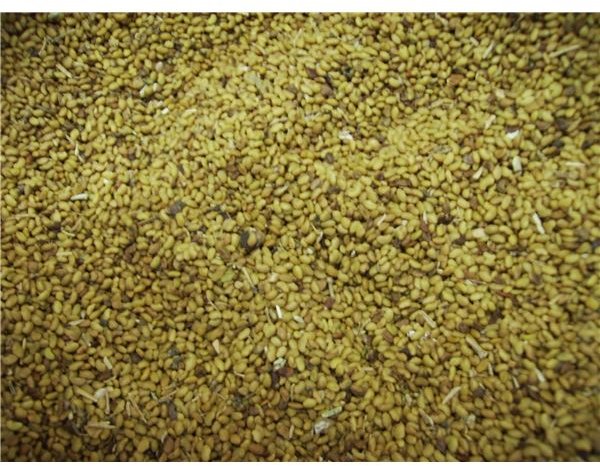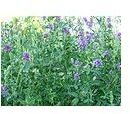What Are the Benefits and Risks of Alfalfa for Arthritis?
Treating Arthritis Naturally
There is no cure for rheumatoid arthritis and conventional treatment involves the prolonged use of non-steroidal anti-inflammatory drugs. These medications do come with side effects including the risk of damage to the liver and kidneys and the risk for stomach ulcers. While choosing alternative treatment options such as herbal medicine can be very beneficial it is important to talk to your doctor about supplementing or substituting with natural medicine. Using alfalfa for arthritis is one of many natural methods for improving well-being and potentially reducing the severity of this chronic illness. How can alfalfa be beneficial? What are the risks of long-term use of this herb? How can it be used safely?
Alfalfa Benefits
What is so great about alfalfa? This herb is a concentrated source of nutrition, containing all the necessary minerals for bone formation. Alfalfa is a good source of calcium, phosphorus, potassium, iron, and vitamins A, C, E, and K. It also has a very high chlorophyll content, which purifies the blood and detoxifies the liver. Due to its high nutrient content and cleansing properties it has been known as a traditional remedy for arthritis as well as other conditions including skin problems, bladder infections, and anemia.
While alfalfa is sometimes used as a natural remedy for arthritis the only condition it has been sufficiently tested for is high cholesterol. While it is believed to prove extremely beneficial for one or two out of every ten arthritis sufferers according to information posted by Washington State University, it may not be effective for everyone who takes it. There are also possible side effects to be aware of.
Precautions
What are the risks involved with taking alfalfa? For healthy adults the leaves are likely to not have any negative side effects. Alfalfa seeds on the other hand contain an amino acid which can cause lupus-like symptoms if taken over time. Because this herb has an estrogen like effect in the body it is safer to avoid supplementing with alfalfa if you are pregnant, nursing, or if you have breast, uterine, or ovarian

cancer, uterine fibroids, or endometriosis without talking to your doctor first. Also, diabetics should be careful when using alfalfa as it may lower blood sugar levels.
Alfalfa Tea
Drinking alfalfa tea is a recommended method for taking this herb. To make alfalfa tea boil one ounce of the leaves in one quart water for ten to twenty minutes. Strain the leaves. You can drink this tea throughout the day. Use alfalfa for arthritis in this way for no more than two weeks at a time. You can make a tea from the seeds, but be advised of the potential negative effect of the amino acid canavanine.
As alfalfa is an herbal tonic for well-being for the whole body it may be beneficial for chronic illnesses such as arthritis. Using the leaves only is a way to ensure that this therapy is safe, although there are conditions or situations where it may be wiser to avoid alfalfa, at least until more research is done on this plant. If considering using alfalfa, talk to your doctor in case it may conflict with any medications you may be taking for arthritis.
References
Medline Plus, NIH https://www.nlm.nih.gov/medlineplus/druginfo/natural/19.html
Holistic Online https://www.holisticonline.com/remedies/Arthritis/arth\_herbal\_medicine.htm#Angelica
Washington State University <https://pnw-ag.wsu.edu/crops/alfalfa.htm
Page, Linda. “Healthy Healing: A Guide to Self-Healing for Everyone, 11th Edition” (Traditional Wisdom, 2003).
Balch, Phyllis A. “Prescription for Nutritional Healing.” Fourth Edition (Penguin Books, 2006).
photo by Erik Violectacl (CC/flickr) https://commons.wikimedia.org/wiki/File:Alfalfa--Luzerne.jpg
photo by Victor M Vicente Selvas (CC/wiki) https://commons.wikimedia.org/wiki/File:Alfalfa\_seeds.jpg
